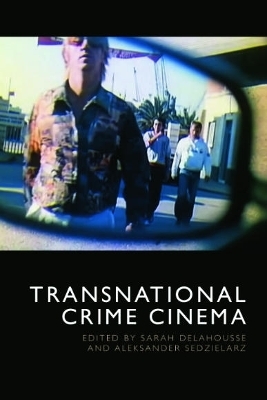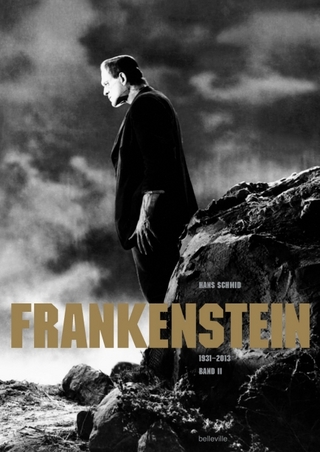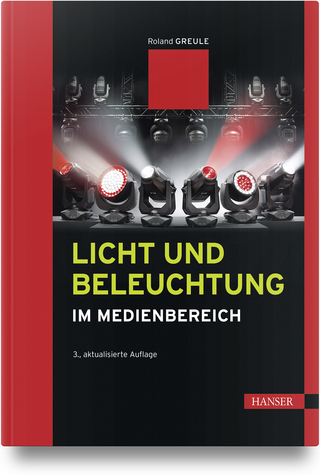
Transnational Crime Cinema
Seiten
2022
Edinburgh University Press (Verlag)
978-1-3995-0567-3 (ISBN)
Edinburgh University Press (Verlag)
978-1-3995-0567-3 (ISBN)
Contributes a genealogical approach to debates on critical transnationalism
Demonstrates that representations of crime in cinema are part of an ongoing recognition and reordering of relations of power at the levels of individual, collective, and state
Offers new angles on the work of a diverse set of directors and films connected through an attraction to crime narrative
Tracks the changing scope and influence of transnational crime through studies of changing patterns of production moving through film, video and digital streaming that reveal cinema's place within larger transnational structural and economic change
Contains original research on social, political, and economic aspects of popular film that connects to topics in cultural studies, area studies (especially Latin America, the Balkans, South and East Asia, and the Middle East), and new media studies
Offers a theory of filmic transnationalism in which cinema has coevolved with a neoliberal order of government actors and criminal organizations, as well as oligarchic and corporate regimes
Framed by approaches in critical transnationalism, this volume examines crime as a cinematic mode moving within, between, and across national cinemas to provide rigorous accounts of the political, economic, and historical processes entangled in the production, circulation, and reception of crime films most frequently treated through the lens of genre.
Filmic narratives of crime open a porous space of public discourse in which filmmakers and audiences project and reimagine relations of power. Transnational Crime Cinema studies the production and reception of films from Europe, Africa, East and South Asia, and South America present crime as a discursive site where the terms of the nation and cinema gain new definition.
Considered transnationally, crime cinema is a self-reflexive modality through which cinema reflects upon cinema's own discursivity while audiences negotiate ideologies and imaginaries of nation against disruptive transnational economic and political pressures.
Demonstrates that representations of crime in cinema are part of an ongoing recognition and reordering of relations of power at the levels of individual, collective, and state
Offers new angles on the work of a diverse set of directors and films connected through an attraction to crime narrative
Tracks the changing scope and influence of transnational crime through studies of changing patterns of production moving through film, video and digital streaming that reveal cinema's place within larger transnational structural and economic change
Contains original research on social, political, and economic aspects of popular film that connects to topics in cultural studies, area studies (especially Latin America, the Balkans, South and East Asia, and the Middle East), and new media studies
Offers a theory of filmic transnationalism in which cinema has coevolved with a neoliberal order of government actors and criminal organizations, as well as oligarchic and corporate regimes
Framed by approaches in critical transnationalism, this volume examines crime as a cinematic mode moving within, between, and across national cinemas to provide rigorous accounts of the political, economic, and historical processes entangled in the production, circulation, and reception of crime films most frequently treated through the lens of genre.
Filmic narratives of crime open a porous space of public discourse in which filmmakers and audiences project and reimagine relations of power. Transnational Crime Cinema studies the production and reception of films from Europe, Africa, East and South Asia, and South America present crime as a discursive site where the terms of the nation and cinema gain new definition.
Considered transnationally, crime cinema is a self-reflexive modality through which cinema reflects upon cinema's own discursivity while audiences negotiate ideologies and imaginaries of nation against disruptive transnational economic and political pressures.
Sarah Delahousse is Adjunct Assistant Professor in the Department of English at York College-CUNY. She is the author of 'Reimagining the Criminal: The Marketing of Louis Feuillade's Fant mas (1913-14) and Les Vampires (1915) in the United States,' published in Studies in French Cinema.Aleksander Sedzielarz is Assistant Professor in the School of English at Wenzhou-Kean University.
| Erscheinungsdatum | 06.12.2022 |
|---|---|
| Zusatzinfo | 48 B/W illustrations |
| Verlagsort | Edinburgh |
| Sprache | englisch |
| Maße | 156 x 234 mm |
| Themenwelt | Kunst / Musik / Theater ► Film / TV |
| ISBN-10 | 1-3995-0567-X / 139950567X |
| ISBN-13 | 978-1-3995-0567-3 / 9781399505673 |
| Zustand | Neuware |
| Informationen gemäß Produktsicherheitsverordnung (GPSR) | |
| Haben Sie eine Frage zum Produkt? |
Mehr entdecken
aus dem Bereich
aus dem Bereich
Filmtechnik, Bildgestaltung und emotionale Wirkung
Buch | Hardcover (2024)
Carl Hanser (Verlag)
CHF 62,95


